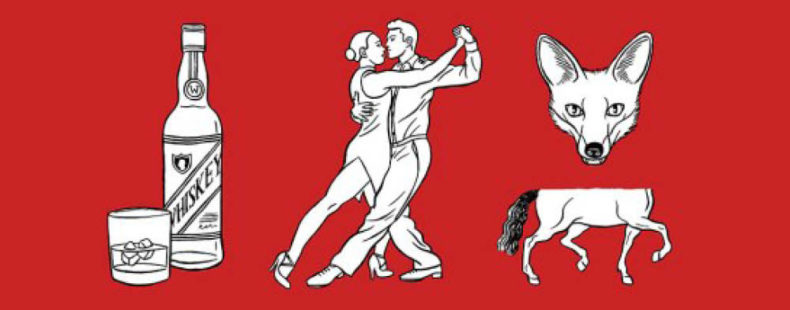Given the size and manpower of the US Army, it’s no surprise that its lingo has gradually invaded everyday conversation. Not many of us keep a Purple Heart framed on our desk, though (i.e., we have no idea what these words and phrases mean even though we hear them all the time). Here’s the best explanations we can come up with as to what these military phrases actually mean (and how to start using them immediately because they’re amazing). Fun fact: A lot of them make great movie titles or band names.
whiskey tango foxtrot
Meaning: WTF (what the f*ck).
Origin: NATO phonetic alphabet—W for “Whiskey,” T for “Tango,” F for “Foxtrot.”
In a sentence: “Whiskey tango foxtrot, I can’t believe he double-crossed you like that!”
fubar
Meaning: A mess.
Origin: 1940s US military acronym made up by soldiers to stand for “f*cked up beyond all recognition;” arguably became popular with Americans abroad during WWII due to its similarity to the German term furchtbar (terrible).
In a sentence: We tried to fix her bangs, but ultimately Courtney’s haircut was fubar. She’ll have to wear a hat for a few months until it grows out.
zero dark thirty
Meaning: An unknown/undefined time in the early morning.
Origin: US military timekeeping terminology—any time that’s before 10am is prefixed with “zero,” so zero dark thirty is an unspecified (thirty minute) time before 10am.
In a sentence: Omar’s dog always wakes up at zero dark thirty demanding to be let outside.
umpteen/umpteemth
Meaning: Very many.
Origin: Military slang from the early 1900s; perhaps influenced by “umpty,” which is a dash in Morse code—the means of communicating at that time.
In a sentence: “Instead of asking me for gum for the umpteenth time, why don’t you just buy yourself a pack?”
roger/roger that
Meaning: Message received.
Origin: the NATO phonetic alphabet—a previous version of the alphabet used “Roger” to signify the letter R. Fun fact: Now they use “Romeo.”
In a sentence: “Babe, will you pick up some burgers on the way home?” “Roger that—and I’ll grab some fries, too.”
Murphy’s Law
Meaning: The idea that anything that can go wrong, will.
Origin: Named after US Air Force captain Edward A. Murphy, when he became frustrated with faulty wiring on a project.
In a sentence: Spring break’s events seemed to be ruled by Murphy’s Law. First the flight was cancelled, then the hotel was overbooked, and then there was the food poisoning …
snafu
Meaning: A messed-up situation.
Origin: 1940s US military—SNAFU is an acronym for the oxymoron “Situation Normal, All Fucked Up,” which suggests the status quo chaos of wartime.
In a sentence: Ted found himself in a major snafu: should he return the wallet he found and find its rightful owner or pay off his gambling debt?
P.O.V.
Meaning: Personally-owned vehicle.
Origin: modern military (technical term used by the government).
In a sentence: In Iraq, Kelly’s P.O.V. was a Jeep; back in the States after her years of service, she upgraded her P.O.V. to a Tesla.
with flying colors
Meaning: Successful.
Origin: Used as sailors on naval ships saw colored flags at port when returning from a successful mission.
In a sentence: In Clueless, Cher doesn’t exactly pass her road test with flying colors.
raunchy
Meaning: Vulgar.
Origin: Spanish American War-era Air Corps slang; perhaps adapted by American soldiers inspired by the Spanish word rancho.In a sentence: It’s sweet how R-rated movies that seemed so raunchy to our parents in the 1980s are about as vulgar as, say, Boss Baby today.
wilco
Meaning: Will comply.
Origin: WWII radio slang, often used in conjunction with roger/roger that.
In a sentence: “Can you pick up the dry cleaning on your walk home?” “Wilco—but you owe me one.”
deadline
*Editor note: OK, you probably know what this one means and how to use it, but we had to include it because who knew it originated in military lingo?!Meaning: The absolute latest you can get something in.
Origin: Both sides kept military prisons for soldiers during the Civil War; the boundaries for these prisons—which imprisoned soldiers would be shot if they crossed—were the “dead lines.” Creepy.
In a sentence: All the students turned in their papers on Kindred as close to the deadline as possible.












